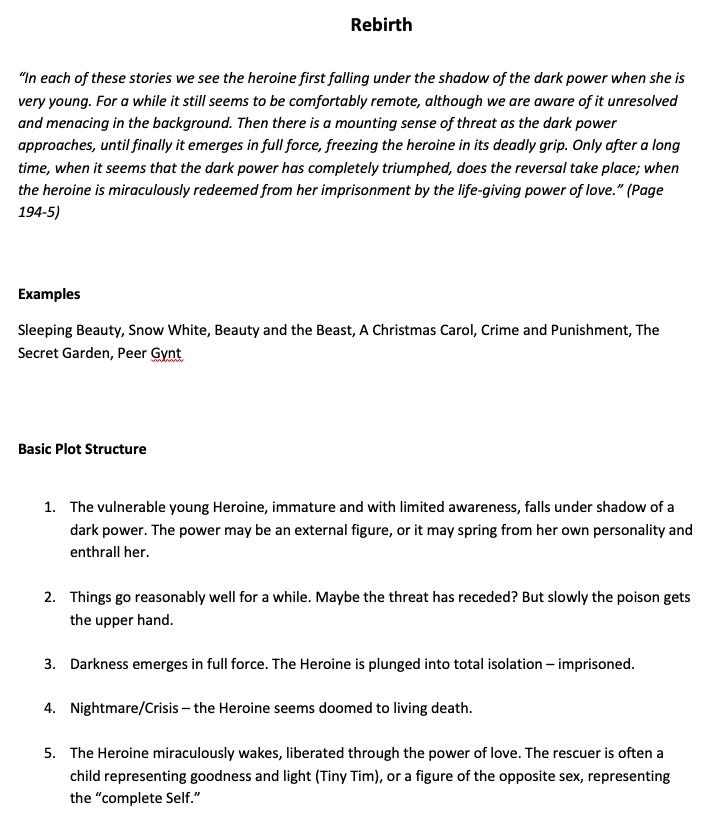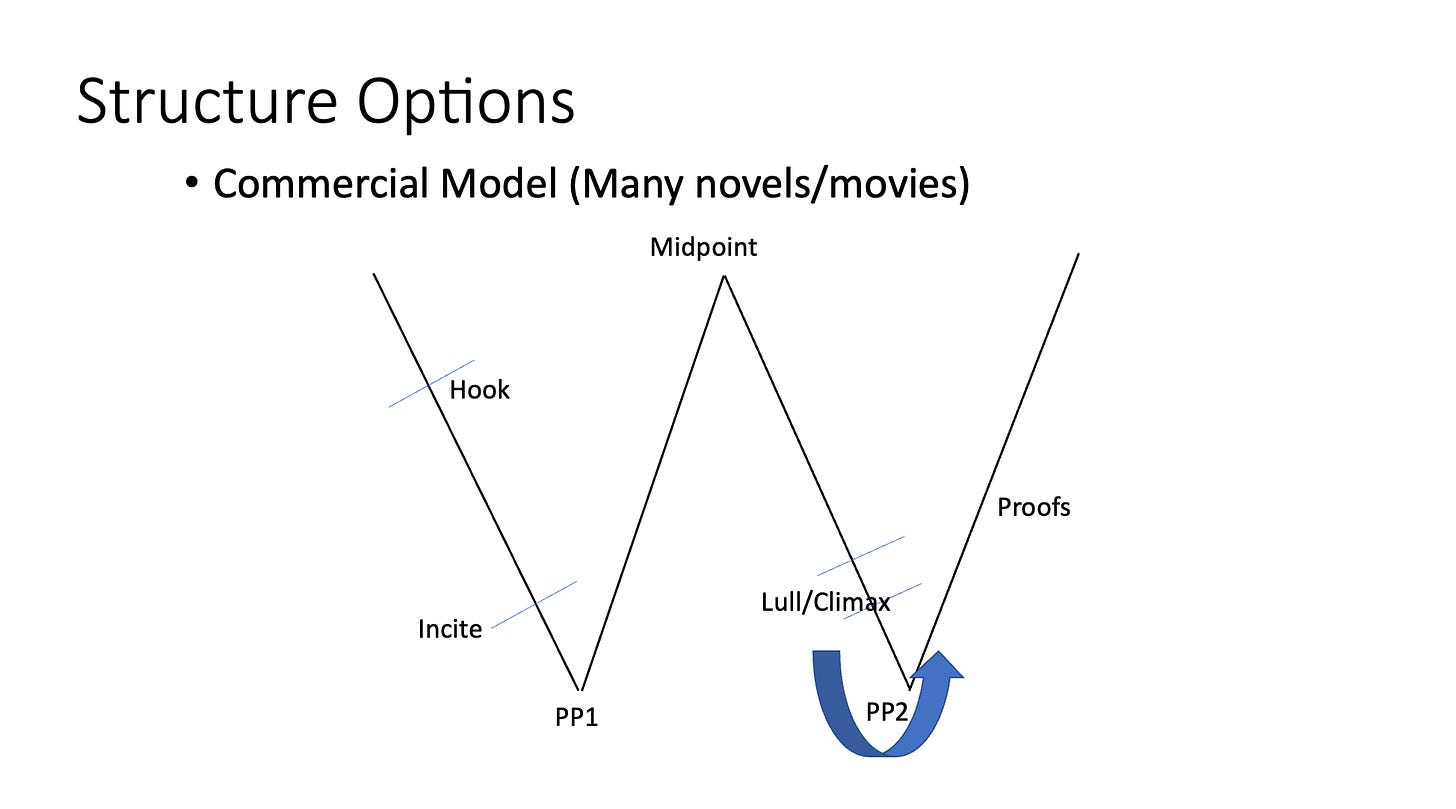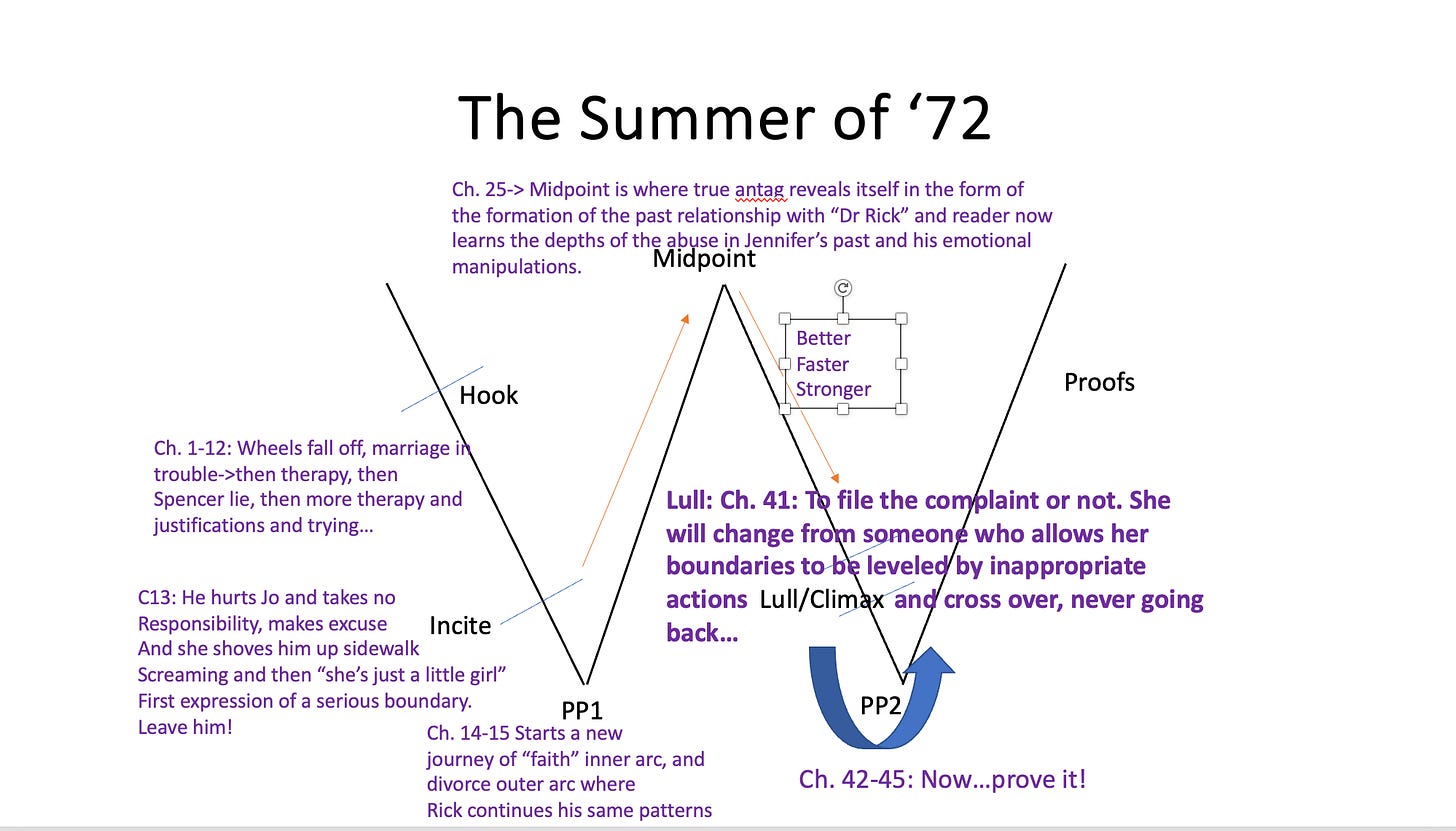🎧 Truth, Memory & Craft: Unveiling The Summer of '72 | A Memoir Experiment in Novel Structure
Welcome:
The Summer of '72 begins as a story of a marriage in crisis and ethical violations in the medical establishment, but unfolds into something far more profound: an exploration of how suppressed trauma can either destroy us or open us to transcendent grace.
Reading like a novel while carrying the weight of spiritual testimony, Summer demonstrates not just the potential for healing, but how suffering itself can open doorways to mystical understanding. It suggests that our most grievous wounds, rather than destroying us, can become the very places where divine presence enters most powerfully into our lives.
A few disclaimers:
The big events, the legal ones, to include recovered medical records and testimony before the Oregon Medical Board are all true and recounted without modification. The course of the events with Dr. Rick are also true as they are laid out.
Names/locations/identifying features have been changed in the case of all the characters except myself, my children, and Steve.
For the sake of flow, I’ve created composite scenes from some conversations and events. This means I permitted myself artistic license in some cases. In other cases, I stayed as close as possible to the actual moments.
The Wide View of The Summer of ‘72
Memoirs, for the most part, run a fairly predictable course: Trauma -> suffering -> therapy -> healing -> closure. Powerful, to be true, because our stories are about resilience, what I’m attempting here seeks to be fundamentally different in that closure isn’t the destination but rather awakening to how the divine works into and through the darkest moments.
In this way, Blackbird and The Summer of '72 create a spiritual diptych, though separated by decades. In Blackbird, there is a child's direct encounter with transcendence through the twins' birth scene - a moment where, despite being at her lowest point (homeless, ill, mentally fragile), Jenny experiences a profound connection to something larger than her suffering suggesting an innate spiritual understanding that precedes any formal theological framework.
The Summer of ’72 now reveals that this capacity for transcendent understanding was present even earlier, in an even darker moment (Chapter 45) which I’ll not spoil here.
The relationship between Blackbird and The Summer of '72 then suggests spiritual awakening isn't necessarily linear or progressive, but rather exists in moments of grace that may only be fully understood in retrospect. Blackbird captured the immediate experience of such a moment, while The Summer of ’72 now reveals how such moments can be buried within trauma, waiting to be recovered and integrated into a larger spiritual understanding.
Both works then challenge conventional narratives about both trauma and spiritual development. They suggest that our capacity for transcendent understanding doesn't develop after trauma is "healed," but may be present within the traumatic moment itself, operating at a level deeper than conscious awareness.
Construction
I started thinking about writing around 2016, and really wanted to write this one in the manner of a classic novel, adhering to a dramatic structure and alignment with a classic plot line for the simple reason that I was told by a colleague who specialized (and taught) fiction, “It could not be done.”
He was wrong.
Memoir can be written in the same way as the best novels. Yes, it takes longer and requires the writer to have enough emotional distance from their material to think in these structural ways, but it’s possible. The reporting of events typical in memoir, the habit of “this happened, that happened” construction is tiresome.
This is a genre that can, if we are up to the task, help us think in the ways of our best storytellers. I’m not claiming this is a great or even memorable book. I am claiming that I tried to make it so, or at least shove the genre forward an inch or two. We’ll see.
The plot (I believe) is Rebirth as taken from The Seven Basic Plots by Christopher Booker.
The structure is the classic W format learned in Story Engineering by Larry Brooks.
And this is the final of the structure with key moments laid in:
Here is the reference list of teachings from the chapters that I’ll add as I go:
3/23: The Memoir Writing Introvert: The journey to truth via memoir
4/5: Walk Your Talk: Counting scenes, lines of exposition
4/13: Refuse to Repeat Beats: Character development/escalation
6/14: Now Things Get Interesting: Inciting Incident
7/7: Plot Point One, Baby
9/4: From Chaos to Clarity: The midpoint
10/11: The Courage to Go Deeper: Unraveling Trauma in Memoir Writing
11/17: The Geography of Healing
Thanks for being with me, Jennifer 🐦⬛
The Summer of ‘72
Chapter 1: The Wheels Falls Off









I welcome your comments here, but throughout the posting of chapters, have turned off that function in order it reads like a true book. Commentary gets in the way of the continuity. Teaching posts will also have lots of places to comment. 🐦⬛
This is so fascinating, Jennifer! Thank you not only for sharing your work but taking us behind the curtain to see how it's done. About to jump into Chapter 1 now.